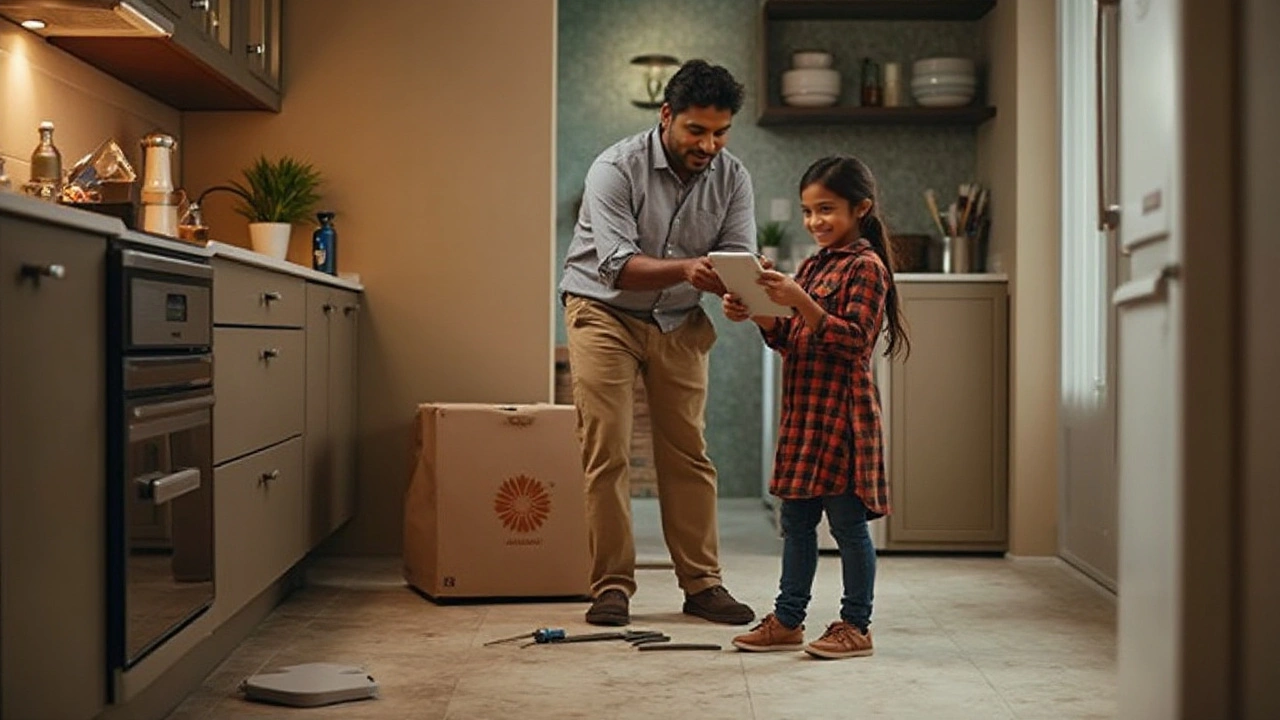When an electric hob suddenly stops working, it can disrupt your daily routine. This article offers practical troubleshooting tips to help identify and possibly fix the problem. From checking electrical connections to exploring overheating issues, the guide empowers you to handle minor repairs with confidence. Whether it's a tripped circuit breaker or a problem with the hob's wiring, you'll find methods to address these challenges effectively. Learn about common hob issues and discover useful maintainance tips to prevent future breakdowns.
Kitchen Appliance Repair: Quick Fixes and Pro Tips
Got a stubborn oven, a noisy fan, or a dishwasher that won’t start? You’re not alone. Most kitchen appliances break down because of a few easy‑to‑miss problems. In this guide we’ll point out the symptoms, walk you through simple checks, and tell you when it’s time to hand over the job to a technician.
Common Kitchen Appliance Issues
First, let’s look at the appliances you see every day. An oven that won’t heat often means a blown fuse, a faulty heating element, or a bad thermostat. Before you call anyone, turn off the power, inspect the element for visible cracks, and test the fuse with a multimeter if you have one.
Extractor fans in kitchens and bathrooms tend to lose power when the motor burns out or the wiring gets loose. A quick way to check is to remove the cover, give the motor a gentle spin, and listen for any grinding. If it feels stuck, spray a little oil on the bearings and try again. If it still won’t turn, the motor likely needs replacement.
Dishwashers stop filling water for several reasons: a clogged inlet valve, a kinked hose, or a failed float switch. Look at the hose for bends, remove the inlet screen and clean any debris, and make sure the float moves freely up and down.
Water heaters that suddenly go cold usually have a tripped high‑limit switch, a broken heating element, or a sediment‑filled tank. Flip the reset button on the thermostat first—if the heater comes back on, you’re good. If not, the element may need swapping out, which is a quick job for a pro.
When to Call a Pro
Some problems are best left to the experts. If you notice smoke, sparks, or a burning smell, shut off the appliance and the main power immediately. Those signs often mean an electrical fault that could be hazardous.
Also, if you’ve tried the basic checks and the appliance still won’t work, a professional can run diagnostic tests that require special tools. For example, a control board failure in an oven or a PCB issue in a fan needs a technician’s eye.
Cost matters, too. A simple motor swap for a fan is usually cheap, but replacing a whole oven control board can get pricey. Ask the repair shop for a written estimate before they start work, and compare it with the price of a new unit.
Regular maintenance can save you money. Clean oven fans and dishwasher filters every month, check vent hoses for blockages, and flush your water heater once a year to remove sediment. A little effort now prevents bigger headaches later.
Bottom line: many kitchen appliance glitches have easy fixes you can try at home. If those don’t work or you feel unsafe, reach out to a trusted repair service. Quick action, a bit of DIY, and the right professional help will keep your kitchen running smoothly.
Replacing an electric oven can be a daunting task for many homeowners. This article provides insights into the process, covering essential steps, potential challenges, and useful tips. Readers will learn about the importance of safety, how to select the right oven for their needs, and when to seek professional help. The guide empowers individuals to make informed decisions if they choose to tackle this task themselves.

